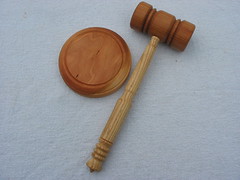What role does social media have in the court?

- Image by KeithBurtis via Flickr
Social media hasn’t had the best reputation in the courts this year. Back in February, a Baltimore Judge took the decision to ban Twitter, Facebook, LinkedIn and all other forms of social media from the court. Although how they can enforce it outside of the court is another matter. This followed a string of cases where members of the jury have used social media platforms to discuss the private court cases.
One case in particular involved 20-year-old Hadley Jons, who was on jury duty and made the mistake of writing on her Facebook page “Gonna be fun to tell the defendant they’re guilty.” Unfortunately, the court case was still in session, and a decision hadn’t been made yet. On discovery, Jons was removed from the jury and faces the possibility of seeing the judge herself for contempt of court.
Interestingly though, Mashable touched upon some of the more positive uses of social media within the law. Some judges are now using social media to test juries, on top of the usual background checks, interviews and other information collected.
Social media can also now be used as evidence in a case. Robert Algeri, a partner at the marketing company Great Jakes, commented “It just makes sense. If you can use e-mail as evidence, why not use a Facebook post?”
What do you think about lawyers using social media for evidence? Invasion of privacy or fair play?
